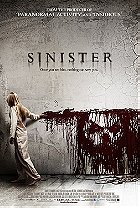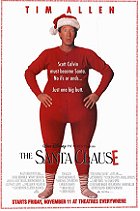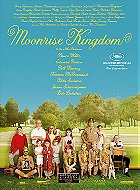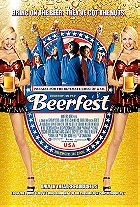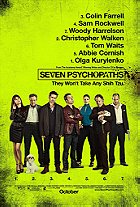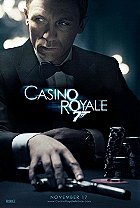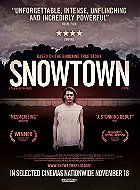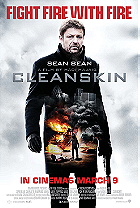Terrence Malick's masterful debut feature, Badlands is a deliberately-paced thriller of immense power and striking visual lyricism. The picture was produced for a paltry $300,000, and is loosely based on the real-life killing spree of Charles Starkweather and Caril-Ann Fugate, whose senseless actions shocked the American public in the late 1950s. Malick, who produced and wrote the film on top of directing, stripped any sense of romanticism from the story, preventing any comparisons to Bonnie & Clyde. Certainly, the dated '70s aesthetic and the idea of a couple on the run is comparable to Bonnie & Clyde, but the similarities end there.

Kit (Sheen) is a 25-year-old garbage collector from South Dakota who looks a lot like James Dean. Not long into the film, he meets Holly Sargis (Spacek), a 15-year-old with a privileged upbringing and a keen interest in reading and music. The two fall head over heels for one another, but Holly's widower father (Oates) strongly disapproves of the relationship. In order to be with Holly, Kit murders his lover's father in cold blood, and the two set the house on fire and flee to the badlands of Montana hoping to start a new life together. But the authorities are not far behind the pair, and Kit eventually turns to killing a string of innocent people as Holly and himself go on the run.
Badlands is easily the best motion picture Terrence Malick has ever made, as it's the most focused and possesses the most amount of narrative momentum. Unlike Malick's intolerable later output, the film is not weighed down by self-indulgence or undisciplined storytelling. Rather, Badlands is a ripping thriller which briskly establishes its two protagonists before sending them on their crime spree. Malick packs a lot into the film's 90-minute running time, and the pace is often kept taut. Admittedly, the picture does occasionally plod, and there is a fair amount of obvious and slipshod ADR, but Malick gets more right than wrong. The most remarkable aspect of Badlands is its visuals - cinematographers Brian Pobyn, Tak Fujimoto and Steven Larner skilfully photographed the harsh bleakness of the South Dakota badlands, while the score by George Tipton bursts with haunting melodies. The surreal yet banal landscapes essentially reflect the empty souls of Kit and Holly. Thus, instead of choosing between style or substance, Malick mixed the two, a trick that more filmmakers should learn.

From start to finish, Kit and Holly remain bewildering characters, with Malick telling their story as it is and leaving viewers to interpret what they see. Holly's motivations can possibly be understood in terms of simple boredom, naïveté and being in love with Kit, though it's hard to say for certain. Kit, on the other hand, is a genuine enigma. Consistently described as a dead ringer for James Dean, he's a fascinating combination of boyish charm and cold-blooded killer. Kit's brand of evil is peculiar, as he does not seem to carry any emotional baggage. In fact, he seems detached from the violence - the people he kills are not bad and do not deserve to die, and Kit kills them without any sense of remorse. Thus, Malick creates a fascinating scenario: viewers will want to get closer to the pair and find out precisely what makes them tick, yet the film keeps us at arm's length, never pretending to know all the answers. Some may dislike Badlands for this reason or perceive it as lazy, but this reviewer found the experience uniquely enthralling. After all, Kit and Holly's real-life counterparts are question marks, hence armchair psychology would be foolish.
Badlands greatly benefits from the presence of Martin Sheen and Sissy Spacek. Sheen is the better of the two, probably because he's given the most to do as Kit. Sheen's boyish charisma is a huge asset, and he really nails the characteristics which make his character such a mystery. Sheen moves like a primal force, and there seems to be no rhyme or reason to his actions. But he also baulks from making Kit outright evil; he always maintains a sense of charm and amiability, which is exactly what makes his actions so shocking. Meanwhile, Spacek provides solid support for Sheen; her quiet, understated performance as Holly is a revelation. Spacek was in her early 20s here, yet she's tremendously nuanced, and it's no surprise that she went on to have a remarkable career.

After Badlands and Days of Heaven, the infamously reclusive Terrence Malick disappeared from the filmmaking scene for twenty years, after which his films suddenly became bloated and unfocused. It is therefore refreshing to watch Badlands and see just how disciplined and masterful Malick used to be.
7.9/10
 Login
Login
 Home
Home 183 Lists
183 Lists 1674 Reviews
1674 Reviews Collections
Collections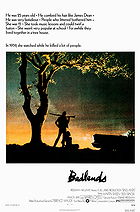
 0 comments,
0 comments, 